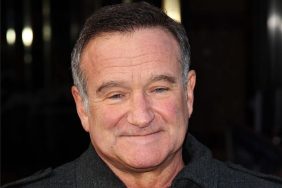This past week was an extraordinary week in Los Angeles for black art, artists, political activism, and the points at where they all meet. Last Wednesday evening the Hammer Museum hosted a panel on the life and death of Latasha Harlins, and what her death meant. Just thirteen days after Rodney King was assaulted by a gang of cops, fifteen-year-old Harlins was shot in the head by a Korean grocer Soon Ja Du, who accused her of theft. Du was sentenced to a five hundred dollar fine and probation. The fury that erupted after Rodney King’s assailants were acquitted has its roots in the Harlins case. UCLA historian Brenda Stevenson, Loyola Law School Associate Professor Priscilla Ocen, and UCLA legal scholar Kimberlé Crenshaw (whose scholarship is the basis for the now much misused, misunderstood critical framework of intersectionality, a term she coined) discussed how the Harlins case illuminates the vulnerability of black girls and how communities can serve and protect them. The panel was moderated by Laura Flanders, and a recording of it can be seen here.
Also: “Let Us March On” Showcases Lee Friedlander’s Unseen Civil Rights Photographs
The next day the Hammer hosted the panel “The Not So Silver Screen: Black Women and Media,” with Prof. Crenshaw moderating a panel that included legendary actress Diahann Carroll; stage and soap actress Tonya Pinkins; film, television, and theater actress and director LisaGay Hamilton; veteran Hollywood casting director Tracy “Twinkie” Byrd; April Reign, #OscarsSoWhite creator and the founder and editor BroadwayBlack.com; and University of Alabama professor Kristen Warner, who studies race, representation, and the media. A recording of that panel can be seen here.

Kerry James Marshall still courtesy MOCA; photo by Bryan Forrest
That same Thursday night, Kerry James Marshall, whose Mastry exhibit is a huge critical hit (as it has been in Chicago and New York) and has drawn crowds since opening on March 12 at MOCA Grand, was in conversation with MOCA Chief Curator Helen Molesworth before a packed house at Colburn School.
And Friday night filmmaker/visual artist Arthur Jafa and his family were on hand at the Geffen Contemporary at MOCA for the opening night party for his brilliant short film “Love is the Message, the Message is Death.” The film is a poetic, infuriating, inspired and moving meditation on black life, death, resistance, cultural production, and all the big existential questions, all packed into a dense, hypnotic seven and a half minutes. Among those attending the party were visual artists Henry Taylor, Ben Caldwell, Lisa Soto, and Charles Gaines; filmmakers Numa Perrier, Kahlil Joseph, and Tchaiko Omawale; scholars Suné Woods, Darrell Moore, Tisa Bryant, Keith M. Harris, and Shana Redmond; and Sonic Youth’s Kim Gordon, Mad Men’s Jon Hamm, poet/activist Saul Williams, Grey’s Anatomy actor Jesse Williams, and Black-ish actress Yara Shahidi.
Below is a clip of Jafa in conversation with Hans L. Charles from 2014, discussing Black aesthetics.

Mastry runs thru July 3.
“Love is the Message, the Message is Death” runs thru June 12.
Top photo of Lauryn Hill is a still from “Love is the Message, the Message is Death,” courtesy Arthur Jafa and Gavin Brown.






